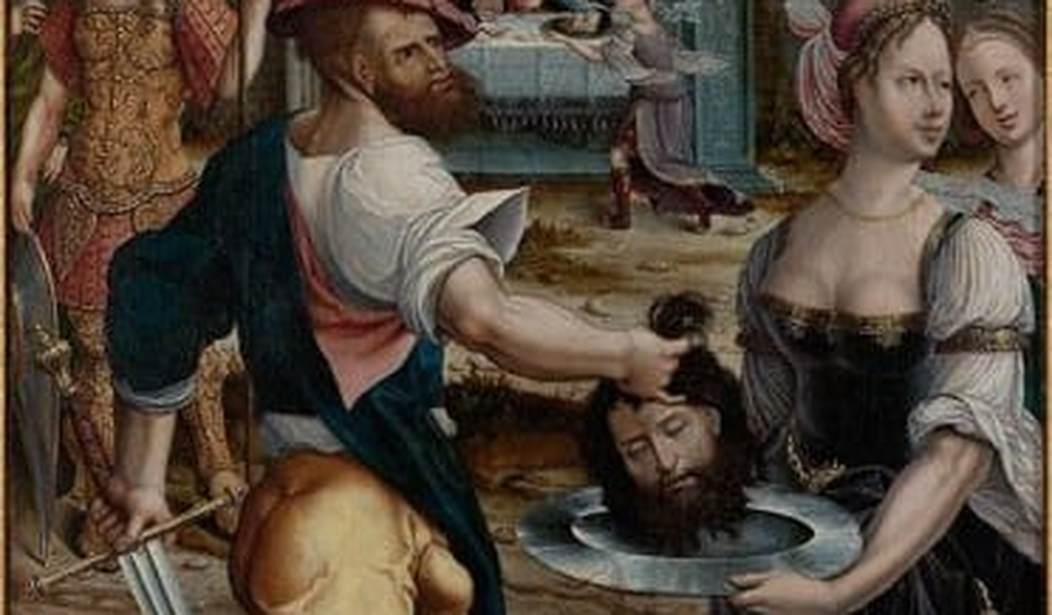Although Advent is the season of anticipation of Jesus’ birth, most Christian churches include as part of early Advent readings several references to John the Baptist – who, in proclaiming the coming into ministry of Jesus at age 30, was anticipating not an incarnation but a full spiritual maturation. Yet either way, quite fittingly, the greater focus is on the Christ, not on His herald.
Let’s take a moment, though, to honor the remarkable figure of the Baptist – who was, after all, the first man ever martyred for, in effect, his service and testimony to Christ.
John must have been a man of remarkable charisma – attracting, as the Bible reports, throngs of people of “Jerusalem and Judea…and all the region along the Jordan,” all “going out to him” to be baptized. Yet he was described as the antithesis of what we would consider an attractive figure. He was a wild man, wearing odd clothes, eating odd things, living in the hinterlands. And, repeatedly, telling his followers that he himself was not the man, the leader, the messiah, they sought.
Rare indeed is the cult leader (for, by the standards of his day, that is what he surely appeared to be) who tells his followers that he is not the one who will be their deliverer. To carry the message that “I am not the one,” but to attract such a large following anyway, is astonishing.
John surely knew not only that he was soon to be eclipsed by Jesus, but also that he risked having his very life snuffed out. He knew that what he preached was a message considered dangerous by the authorities – and he knew that despite the crowds who followed him, he remained very singular, and in crucial respects very much alone.
Let us ponder, then, and honor, the courage required of one who is a voice in the wilderness. Let us consider the stifling and frightening loneliness of being the one person carrying a message detested by those in power of one sort or another.
We have seen other men with similar characteristics (although none with a message as important as proclaiming the coming of our Lord): Gandhi, the early Martin Luther King, dissidents imprisoned in Soviet gulags. In our own lives, we surely know people less famous but of comparable moral courage: the rare teen who rejects peer pressure that would have him join the group in doing something wrong; the businessman who walks away from a self-enriching deal because it would leave an innocent in the lurch; the candidate who quietly rejects a proposed, potentially devastating attack on his opponent because he doesn’t think it’s fair.
And of all these people of moral courage, the loneliest surely is the Cassandra – the voice bringing an unwelcome message, knowing that in one way or another the hearer’s tendency will always be (figuratively and maybe literally) to kill the messenger.
Have you ever been the only one, or the first one, in a large crowd to take a particular stand, or to issue a warning, or to highlight an injustice? Have you ever been struck by the raw fury that can come at you in response? Has it ever seemed that those with some sort of power or authority want your head on a platter?
It’s not fun.
In John’s case, at least, he knew that the message he was proclaiming was good news – even if the scribes and Pharisees and kings thought it was bad. He knew he was preaching the world’s salvation (even if some would through their own choices would destroy themselves in response). And though he surely knew the sickening perversity that he would be punished for bearing good news, he did at least, nonetheless, know that his news was that of hope and joy. That knowledge, at least, was surely of comfort. That knowledge surely sustained him.
The promise of joy, of the redemption Christ offers, should sustain us, too, if and when we face calumny for proclaiming the right and choosing light over darkness.
As John the Baptist did, so too we should do, fearlessly and enthusiastically: “Prepare the way of the Lord.”
Quin Hillyer is a veteran conservative columnist. He has an undergraduate degree in Theology from Georgetown University and has served for years in various forms of ecumenical lay leadership.









Join the conversation as a VIP Member